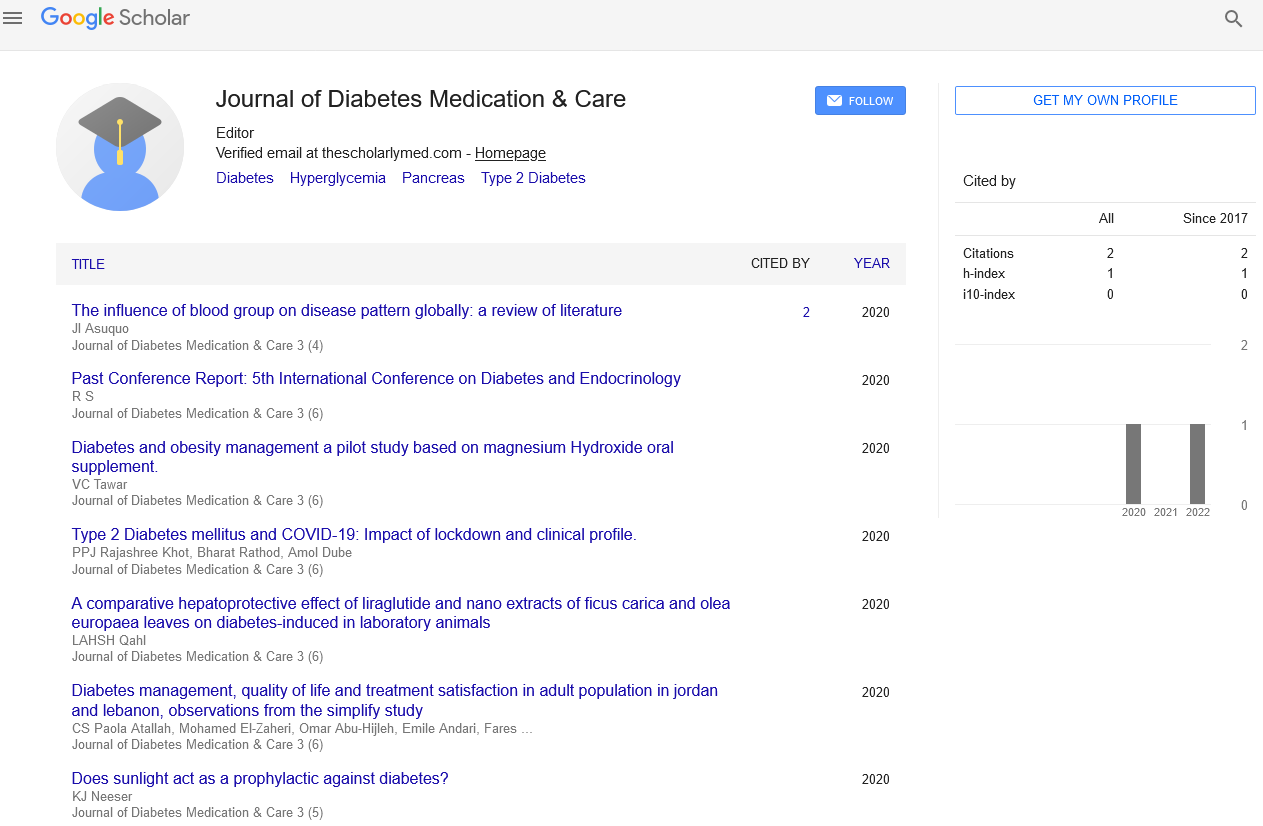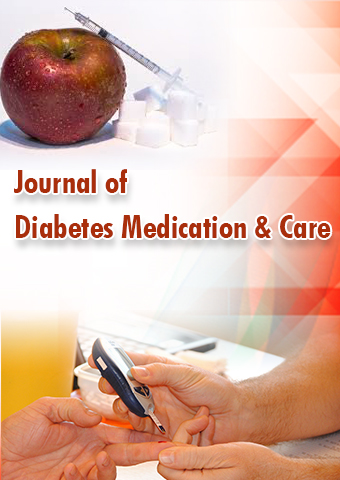Short Article - Journal of Diabetes Medication & Care (2019) Volume 2, Issue 1
Comparative Study of the Etiologies, Prevalence, Management of Indian vs Western Countries in Adrenal Insufficiency
Abhishek Shrivastava
R & R Diabetic & Thyroid Clinic, India
Abstract
Adrenal insufficiency requires lifelong glucocorticoid or mineralocorticoid treatment which hampers the quality of life of patient physically as well as emotionally. The clinical presentation and etiologies of adrenal insufficiency may differ in india than in western countries. Adrenal insufficiency presents with a clinical presentation of chronic mineralocorticoid or glucocorticoid deficiency due to failure of adrenal cortex. Failure of adrenal cortex have different etiologies across different borders.
Adrenal insufficiency or (addisons disease) is a well-known life threatning condition. The 2 year mortality in primary adrenal insufficiency exceeds 80% and there is 2 fold increase in standardized mortaluty ratio due to cardiovascular or infectious diseases in patients with adrenal insufficiency. As there are no exact known risk factors patient education remains the main strategy for prevention of complications. India as a socioeconomic country still has developing nature so is the problem with diseases they are still developing, the clinical presentation of addisons disease may differ from western countries so can be the etiologies also, once such study which was done by g. Agrawal which was the retrospective and prospective study they found that tuberculosis remains an important cause of addisons disease in india with a prevalance rate of around 47% in patients with addisons disease.
In another such study done by r. Sarawagi they found the 30% of patients with addisons disease had underlying infection. Other possible causes also have high prevalance like cancer, autoimmuity, fungal infections, hiv, certain treatments of cushings syndrome. When thomas addison described the disease the most common cause in the developed world was tuberculosis and fungal infections, but as the medical science evolved so was the community the preavalance of tuberculosis decreased and now the most common cause in developed world is autoimmune destruction of the adrenal gland the prevalance rate been 70-90%. Autoimmune adrenalitis is the most common cause of Addison's disease in the industrialized world. Autoimmune destruction of the adrenal cortex is caused by an immune reaction against the enzymes of adrenal gland.
Other Possible Causes of Addison's Disease Include:
• infections – like those linked to HIV, or fungal infections
• a haemorrhage – into the adrenal glands, sometimes associated with meningitis or other sorts of severe sepsis.
• cancer
• amyloidosis – a disease where amyloid, a protein produced by your bone marrow cells, builds up in and damages your adrenal glands
• surgical removal of both adrenal glands (adrenalectomy)
• adrenoleukodystrophy (ALD) – a rare, life-limiting inherited condition that affects the adrenal glands and nerve cells within the brain, and is usually seen in young boys
• certain treatments needed for Cushing's syndrome or cushings disease caused by very high levels of cortisol in the body
Management
Glucocorticoid (GC) is secreted in a pulsatile and circadian fashion, reaching a peak in the morning and nadir at midnight. The preferred choice of GC replacement is hydrocortisone (HC) or cortisone acetate (CA). Both HC and CA are taken in 2–3 divided doses, with the first dose on waking up in the morning and the last dose 4–6 h before bedtime. Fludrocortisone is used for mineralocorticoid replacement in ADDISONS DISEASE as a single morning dose of 0.05–0.20 mg. Blood pressure, electrolytes, and plasma rennin activity (PRA) are used to monitor treatment adequacy. Dehydroepiandrosterone (DHEA) replacement is not advised routinely in patients with AI. However, it might be tried in women with hypopituitarism and concomitant AI who have more severe androgen deficiency and in some patients with persistent and severely impaired QoL and reduced libido despite optimized replacement therapy.
Management of Addison Disease Indian Prespective:
The management of PAI or Addisons Disease is challenging in India with lack of infrastructure at every right stage from the diagnosis to the treatment and subsequent follow-up of the patient. The clinical diagnosis of PAI is usually missed by general physicians. The biggest obstacle for treatment of PAI in India is that the limited availability of oral HC tablets. Oral HC is out there in urban areas; however, many of our patients come from rural areas, where the supply of this drug is restricted. Hence, many physicians prefer using prednisolone for the management of PAI. Tetracosactide (cosyntropin; synacthen) isn't easily available in India for ACTH stimulation test, and that we often use intramuscular ACTH stimulation test for diagnosis of AI.
Fludrocortisone is usually prescribed in India in PAI with titration done supported clinical parameters and PRA. The cost and availability of PRA is another obstacle in management. DHEA is not easily available in India, and with limited indications for its use in PAI. A hell lot of labor must be done about patient education and compliance to medications. Although we enforce training all our patients for “sick-day rules,” the guidance is not always followed by the patient.
Management of Addison Disease in developed World:
For the treatment of ADDISONS DISEASE within the developed world, Hydrocortisone is prescribed routinely, prednisolone is occasionally used in patients noncompliant to multiple daily dose schedules or those with severe late evening or early morning symptoms not responding to multiple daily doses of Hydrocortisone.
Few cases are kept on fludrocortisone also. DHEA replacement is not undertaken routinely in clinical practice in western world. Apart from the education provided by the medical staff, support is additionally available from the patients as there are proper follow ups to the physicians, patients are well aware about the risk involved and emergency conditions.
A European open -ended observational study of AI management and outcomes (European Adrenal Insufficiency Registry) is an ongoing registry and will provide further data on the relative benefits of various GC replacement therapies in AI (also includes the novel modified-release preparation of HC). Modified-release HC is taken into account orphan drug and is currently not recommended for routine prescribing within the UK as there's limited evidence on efficacy and safety. Moreover, the drug has not been found to be cost effective.
